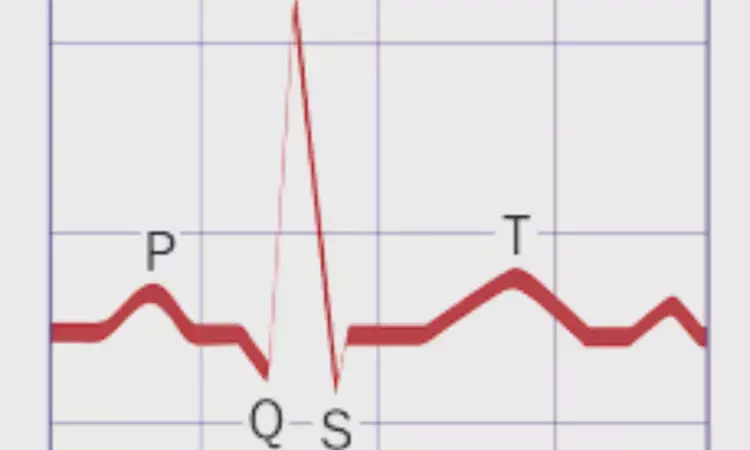- Home
- Medical news & Guidelines
- Anesthesiology
- Cardiology and CTVS
- Critical Care
- Dentistry
- Dermatology
- Diabetes and Endocrinology
- ENT
- Gastroenterology
- Medicine
- Nephrology
- Neurology
- Obstretics-Gynaecology
- Oncology
- Ophthalmology
- Orthopaedics
- Pediatrics-Neonatology
- Psychiatry
- Pulmonology
- Radiology
- Surgery
- Urology
- Laboratory Medicine
- Diet
- Nursing
- Paramedical
- Physiotherapy
- Health news
- Fact Check
- Bone Health Fact Check
- Brain Health Fact Check
- Cancer Related Fact Check
- Child Care Fact Check
- Dental and oral health fact check
- Diabetes and metabolic health fact check
- Diet and Nutrition Fact Check
- Eye and ENT Care Fact Check
- Fitness fact check
- Gut health fact check
- Heart health fact check
- Kidney health fact check
- Medical education fact check
- Men's health fact check
- Respiratory fact check
- Skin and hair care fact check
- Vaccine and Immunization fact check
- Women's health fact check
- AYUSH
- State News
- Andaman and Nicobar Islands
- Andhra Pradesh
- Arunachal Pradesh
- Assam
- Bihar
- Chandigarh
- Chattisgarh
- Dadra and Nagar Haveli
- Daman and Diu
- Delhi
- Goa
- Gujarat
- Haryana
- Himachal Pradesh
- Jammu & Kashmir
- Jharkhand
- Karnataka
- Kerala
- Ladakh
- Lakshadweep
- Madhya Pradesh
- Maharashtra
- Manipur
- Meghalaya
- Mizoram
- Nagaland
- Odisha
- Puducherry
- Punjab
- Rajasthan
- Sikkim
- Tamil Nadu
- Telangana
- Tripura
- Uttar Pradesh
- Uttrakhand
- West Bengal
- Medical Education
- Industry
Prolonged QRS duration in NSTEMI patients not tied to worse MACE and in-hospital death: Study

UK: Patients with extended QRS duration (QRSd) >120 ms concerning non-ST-segment myocardial infarction (NSTEMI) are not at risk for worse in-hospital mortality or major adverse cardiac event (MACE) outcomes, says a study published in The American Journal of Cardiology.
Emerging evidence has suggested that prolonged QRSd is linked with increased short-term mortality in STEMI patients. The QRS duration has been demonstrated to have a significant prognostic impact, and in patients with heart failure, it independently predicts adverse outcomes. Patients with NSTEMI represent a heterogenous group that has similar consequences as presented by STEMI patients.
QRSd is under-researched and ill-defined as a prognosticator in NSTEMI patients. Several small studies have shown an adverse relation between QRSd and mortality outcomes. However, these findings have only been authenticated in small cohorts with a maximum of 2,000 patients.
Considering the above, Saadiq M. Moledina, Division of Cardiology, Royal Stoke University Hospital, Staffordshire, United Kingdom, and colleagues therefore, aimed to examine the management strategies, characteristics, outcomes, and quality of care of patients by QRSd.
The researchers analyzed hospitalizations of 240,866 adults (≥18 years) with NSTEMI by extracting data from the United Kingdom Myocardial Infarction National Audit Project. Thirty-eight thousand twenty-three patients presented with a QRSd >120 ms and 202,842 patients with a QRSd <120 ms. All-cause in-hospital mortality and clinical characteristics were analyzed per QRSd.
The study yielded the following findings:
- Patients having QRSd >120 ms were more commonly older (median age of 79 years vs. 71 years) and of white ethnicity (93% vs. 91%).
- Patients having QRSd <120 ms had higher frequency of use of aspirin (97% vs 95%), P2Y12 inhibitor (93% vs 89%), angiotensin-converting enzyme inhibitor/angiotensin receptor blocker (82% vs 81%) and β blockers (83% vs 78%).
- Invasive management strategies were more probable to be used in patients with QRSd <120 ms, including invasive coronary angiography (72% vs. 54%), percutaneous coronary intervention (46% vs. 33%), and coronary artery bypass graft surgery (8% vs. 6%).
- In a propensity score matching analysis, there were no differences between the two groups in the adjusted rates of in-hospital all-cause mortality (odds ratio 0.94) or major adverse cardiac events (odds ratio 0.94) during the index admission.
"We found that patients with a QRSd >120 ms were most commonly men, older, of Black ethnicity, and multi-morbidity with a history of a previous PCI, MI, or CABG surgery," the researchers wrote. "They were less frequently discharged on guideline-directed medication and were treated invasively less frequently. Elongated QRSd >120 ms in the NSTEMI context is not tied to worse MACE outcomes or in-hospital mortality."
Reference:
Moledina SM, Mannan F, Weight N, Alisiddiq Z, Elbadawi A, Elgendy IY, Fischman DL, Mamas MA. Impact of QRS Duration on Non-ST-Segment Elevation Myocardial Infarction (from a National Registry). Am J Cardiol. 2022 Sep 11:S0002-9149(22)00856-6. doi: 10.1016/j.amjcard.2022.07.039. Epub ahead of print. PMID: 36100505.
Dr Kamal Kant Kohli-MBBS, DTCD- a chest specialist with more than 30 years of practice and a flair for writing clinical articles, Dr Kamal Kant Kohli joined Medical Dialogues as a Chief Editor of Medical News. Besides writing articles, as an editor, he proofreads and verifies all the medical content published on Medical Dialogues including those coming from journals, studies,medical conferences,guidelines etc. Email: drkohli@medicaldialogues.in. Contact no. 011-43720751


